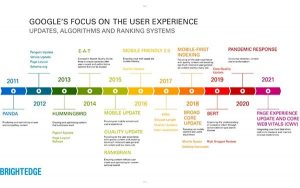
Providing employees with feedback and suggestions for improvement is by no means a novel idea. HR professionals have been studying and developing performance management systems for decades. However, with the influx of the millennial generation, the criticality and procedure for professional development is shifting in important ways.
The differential between how important professional development is to millennials versus other generations is undeniable. Millennials report development as a crucial aspect of their job at a rate of 87% versus 69% of other generations. They want to be the best they can be right now, not five or ten years down the line. However, only 20% feel their employers are providing them with the training they need to grow.
Which leaves organizations with the question: What can we do?
Create A Feedback Loop
We can all agree that the world is more connected today than it was even ten years ago. We are used to receiving input and feedback on almost every aspect of our lives in an instantaneous manner.
Imagine, for a moment, you’re having a debate with a friend of yours about whether it’s Mark Wahlberg or Matt Damon who plays the lead in a movie. Previously you would have to wait to know the answer until one of you could locate the movie either in your homes or at a Blockbuster. Presently, you can either google the movie or pose the question to your Twitter followers and have an answer in less than five minutes.
Now, imagine you have spent your entire life receiving answers to all your questions almost instantaneously. Why wouldn’t you expect, and value, that in your professional life as well?
As I mentioned earlier, millennials want to be the best than can be right now. To do that, they want and need to hear feedback from others about their strengths and weaknesses. The more feedback they receive, the more engaged they are as employees. However, only 19% of millennials say they are receiving feedback routinely. In fact, most employees of all ages say they are meeting with their managers and receiving feedback less than once a month (56% of millennials; 53% of other generations).
This is a great area of opportunity for organizations and managers to engage people. Millennials especially want to be a part of the feedback process. They want to hear from managers, yes, but they also want to communicate to their managers what they need. Where do they see their strengths and weaknesses, and how do they want to grow? By creating a feedback loop for their employees (of all ages) organizations increase the likelihood of retention and are more likely to discover internal challenges.
Mentoring: Wax on, Wax Off
Mentoring has become an expected part of any millennial’s career path. As a young professional, if you start searching for tips and tricks to boost careers this will be a key topic. As such, it will probably come as no surprise to hear that it’s a major driver in employee retention and that millennials are shaking up how it’s done.
Millennials are rejecting traditional, formal, mentorship programs. They want mentoring relationships that happen in a more organic manner and that they have increased control over. On top of that, they no longer expect to have a singular mentor. Young professionals are developing multiple mentor relationships to leverage different areas of expertise.
Gone are the days of managers sitting across a desk from their younger employees telling them to ‘wax on, wax off’ their careers. Mentorships that are two-way streets are on the rise. Millennials want to know their voices are being heard as well, and they think they have value to bring to the metaphorical table. Creating an open dialogue and partnership can benefit both the mentee and the mentor.
So how does this all benefit the organization? Managers taking increased time from schedules that are already full doesn’t sound strategically sound. After all, there are only so many hours in the day to spend on feedback and mentoring.
Consider this – employees are more likely to stay with a company if they have a mentor. How much more likely? When asked if they were planning to stay five or more years, 68% of those with mentors said yes compared to only 32% of those without mentors.
When comparing the cost of turnover to the cost of talking to your employees the answer is clear: talk is cheap.
Business & Finance Articles on Business 2 Community(68)
Report Post





